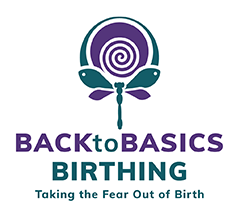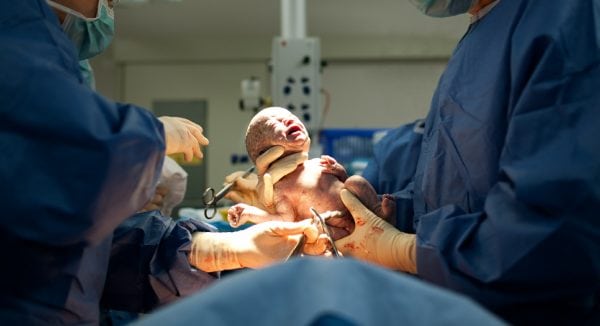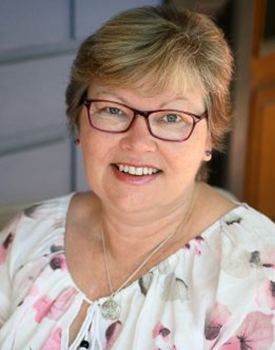Contact Vicki
If you have any questions or would just like more information please don't hesitate to get in touch by clicking the button below and filling out the contact form.
Contact Vicki

A caesarean is major abdominal surgery, so you can expect to experience some level of pain afterwards. Your healthcare provider will ensure that you have medications to help you cope with the pain. It is important that you have support after you leave the hospital to ensure a speedy recovery. It can take anywhere between 6 to 10 weeks for your wound to heal.
Some women are okay after their caesarean, but others can feel traumatised particularly if it was an unplanned caesarean, so it is very important to talk about your feelings and express if you are feeling sad or emotional. Keeping those emotions inside only builds up negative energy in your body and affects the mind even more; increasing the feelings of sadness. When you do feel this, then go for a walk, go out in the fresh air and “breathe” as you need more oxygen to “clear out” the negative energy in the cells.
You can also call the Pregnancy Birth and Baby Helpline on 1800 882 436 for advice and free counselling, 24 hours a day, 7 days a week.
https://www.pregnancybirthbaby.org.au/pregnancy-birth-baby-helpline
Rest and relaxation – everything can wait. Accept any help and support from others when offered. Don’t feel too proud to accept help. A great gift from family and friends is prepared meals that can be frozen and easily heated and served without too much preparation. If anyone asks what they can bring make sure you say “meals” and snacks.
Continue to focus on your breathing to relax your body, particularly the muscles so that you are not creating any tension in your body and creating more pain. In the first few weeks it is helpful to hold a pillow against your belly while coughing, laughing or sneezing for support. Don’t hunch over, allow your stomach muscles to stretch out while sitting or standing, even though you may feel that they are stretching your wound, it is not, it is helping with healing. You will have more problems if you continually have a hunched over posture.
Don’t wear tight clothing that presses on your wound and keep an eye out for any signs of infection. This can be redness, pain or swelling around the wound, a smelly discharge, fever, painful urination and heavy bleeding. Numbness or tingling around the wound is normal, but if you are concerned then get it checked by your midwife.
Nutritious food is important, but some of the top anti-inflammatory food sources that are beneficial are salmon, blueberries, turmeric, ginger, garlic, green tea, sweet potato and cruciferous vegetables such as cauliflower, cabbage, bok-choy, broccoli and other green leafy vegetables.
You can make up a blend of cream with essential oils to gently massage the caesarean scar to promote healing. This can include Bergamot, Eucalyptus, Geranium, Grapefruit, Jasmine, Lavender Lime, Mandarin, Neroli, Orange, Roman Chamomile, Rose and Tea Tree. This stops it from drying out and itching and helps with the discomfort and healing of the scar. Frankincense is also a good essential oil to use for scar tissue added to some massage base oil or cream.
Naturopath Tracey Walker from the Live Lightly Centre also suggests Vitamin E Oil and Rosehip Oil, which is good for scarring, Vitamin C and Zinc taken internally, Fish Oil taken internally, Aloe Vera (topically) and to keep the wound sterile, clean and somewhat moist (in other words don’t let it dry out and get all itchy). Arnica is also a natural anti-inflammatory that you can use on your wound if it is “stinging.” Drinking peppermint tea in the first few weeks helps with bowel movements, keeps them soft and easy to push out so you are not straining against the wound. Drinking lots of water and eating fresh, organic fruit to help with regular bowel movements which are not hard, but not runny.
As a remedial & pregnancy massage specialist I believe that massage is a very under-utilised healing modality for healing of caesarean scars. This can minimise the scar tissue dramatically and prevents that hardening of the adhesion and should be a necessity for healing – gently to start with using creams as discussed above, and then including the caesarean scar regularly in postnatal massage. It encourages blood circulation and promotes lymph drainage away from the area as well.
Reiki over the wound and surrounding area can really help speed up the healing process. It may also help to balance your hormones and promote ongoing healing.
Go for short daily walks as this will increase endorphins (healing hormones) through your body as well as circulation and mental wellbeing.
Sometimes women find it more difficult to breastfeed after a caesarean. While breastfeeding you may find the “football hold” the best in terms of comfort and successful feeding while your caesarean scar is healing. You could also sit with a pillow on your lap to support baby and protect your wound. Some women also find lying on their side a great way to feed their baby after a caesarean. You can also express colostrum, which contains protein and helps your baby’s immune system after birth.
If you need breastfeeding support, please contact the Australian Breastfeeding Association or an independent lactation consultant.
https://www.breastfeeding.asn.au/
Pip Wynn Owen from the Perth Baby Clinic has some amazing workshops and private sessions available to those who need more help with breastfeeding and support.
Bub Savvy Support (birthsavvy.com.au)
Here is a list of private lactation consultants that you might find helpful:
http://www.lactationwest.org.au/viewStory/Private%20Practitioners
If you have any questions or would just like more information please don't hesitate to get in touch by clicking the button below and filling out the contact form.
Contact Vicki